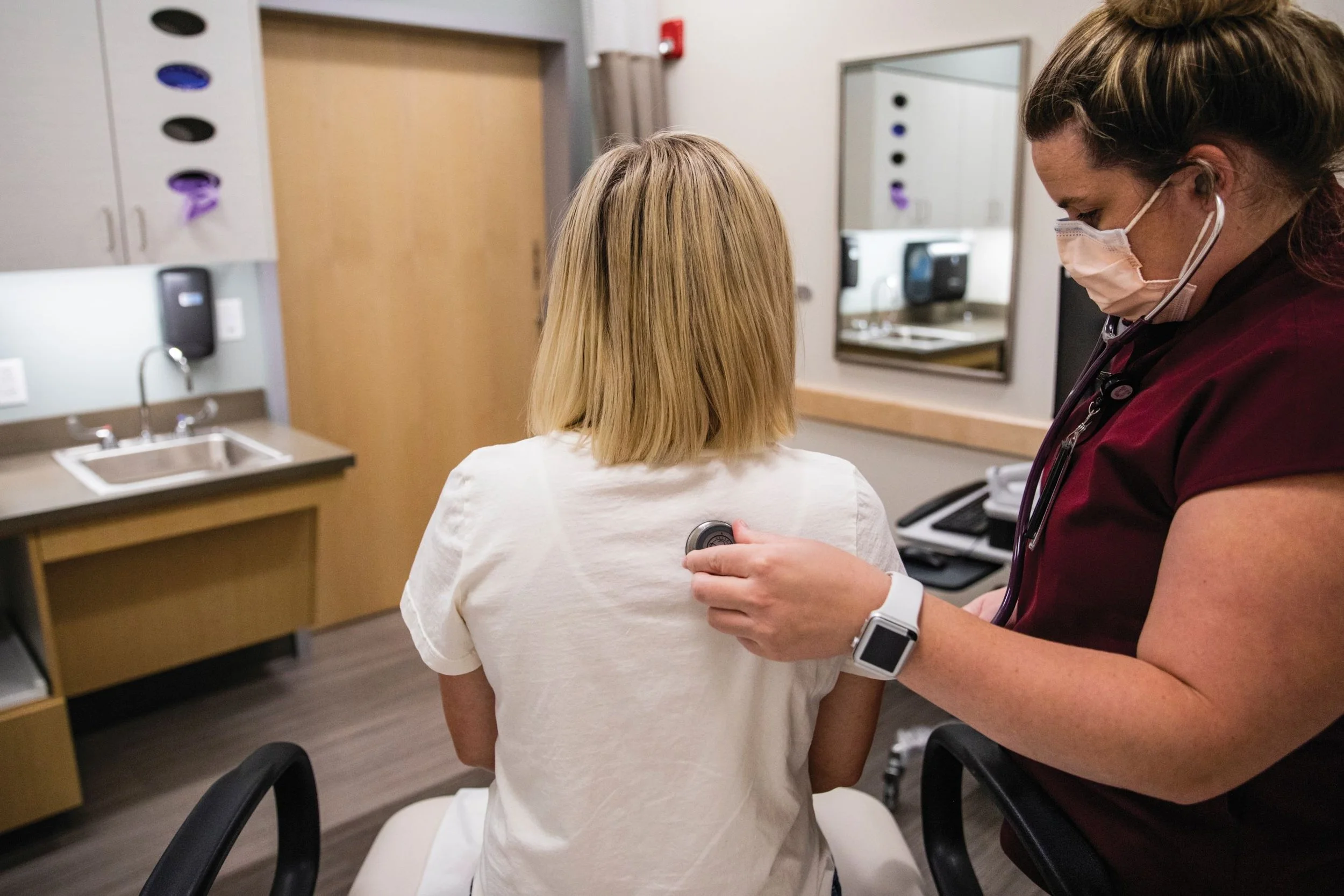Now Open
The opening of the University of Utah Health COVID-19 Clinic has created a bevy of new opportunities for U of U scientists to study the disease’s long-term effects.
Photo by Joe Buglewicz
“A lot of researchers are interested in this patient population, which I think is great,” said Jeanette Brown, MD, PhD, the medical director of the new clinic. “This is a very altruistic patient population that is embracing the concept of research so that physicians not only can help them, but better understand the long-term effects of the disease process so they can help others as well.”
In its early stages of operation, U of U Health researchers expressed interest in collecting data on various long-hauler conditions including pulmonary and cardiovascular function.
One of the first projects involves research by Kevin Shah, MD, an assistant professor of cardiology who is tracking the development of heart failure, arrhythmia, strokes, transient ischemic attacks, deep vein thrombosis, and pulmonary embolism among clinic patients. He will also monitor patients for non-specific symptoms such as chest pain, shortness of breath, and fatigue.
Projects arising from the clinic are just part of U of U Health’s effort to understand the nature of the novel coronavirus and its impact on society. More than 200 investigators from nearly every discipline have participated in over 400 COVID-19-related projects to study the virus from all angles—from testing and vaccine trials to its impact on vulnerable communities and rates of domestic violence. The effort, supported by $62 million in external funding and $1.3 million in university seed grants, has resulted in more than 175 COVID-19 related studies published in peer-reviewed publications. And, their expertise has been cited in more than 500 news stories.
Some intriguing findings making news include the discoveries that COVID-19 causes platelet “hyperactivity,” human amniotic fluid (HAF) can reduce lung inflammation caused by the disease, SARS-COV2 particles are very sensitive to temperature, and COVID-19 complications are more likely in Black and Native American populations.
Doug Dollemore

